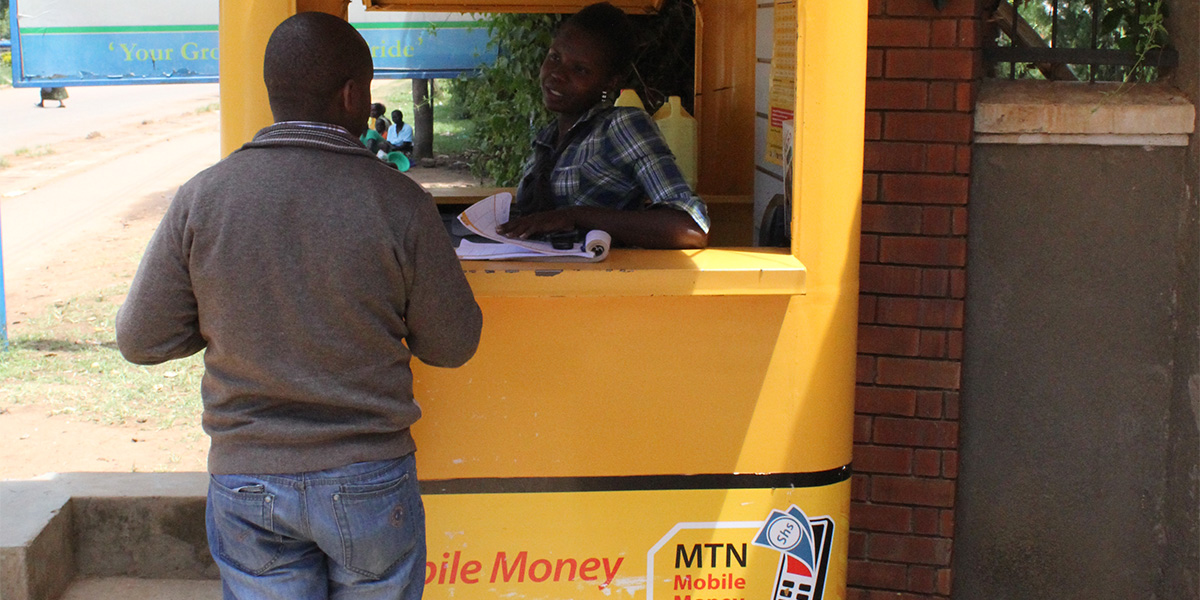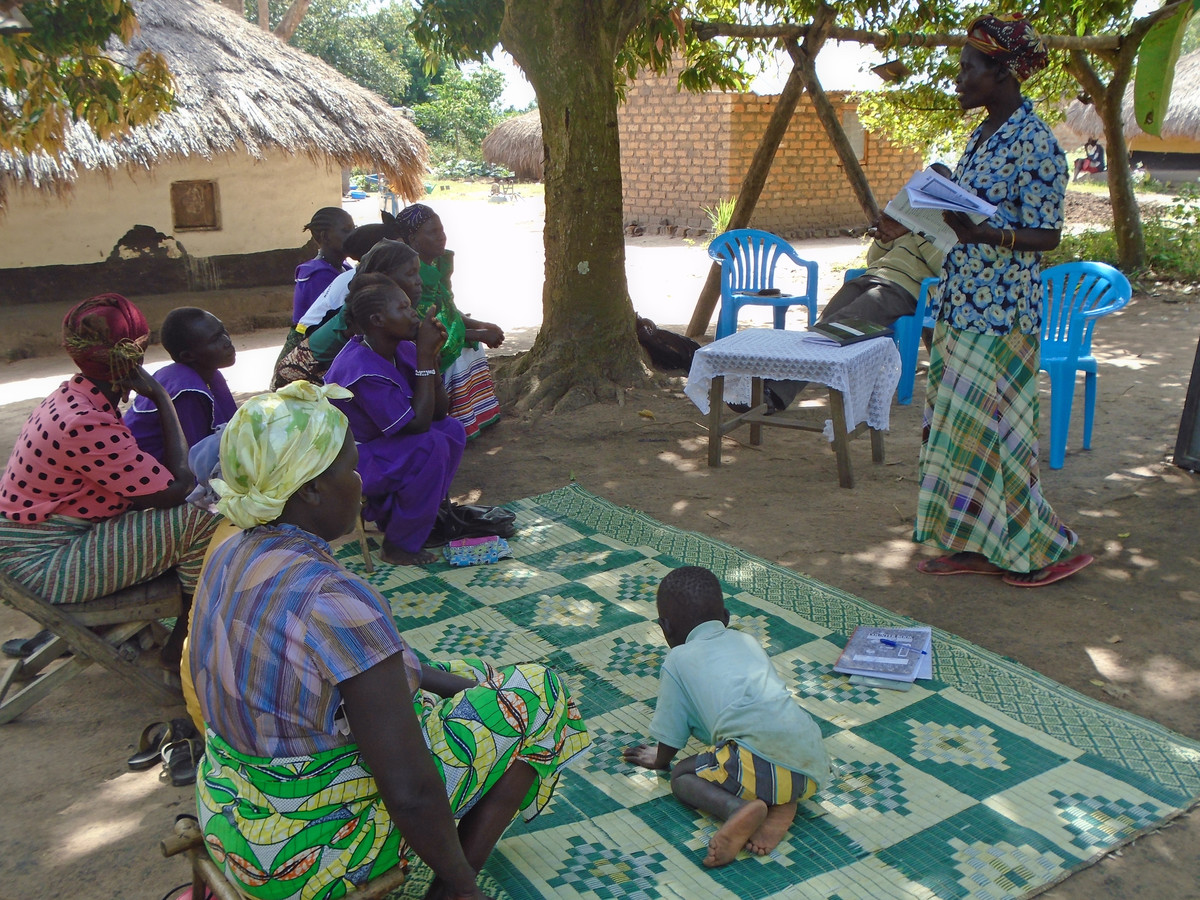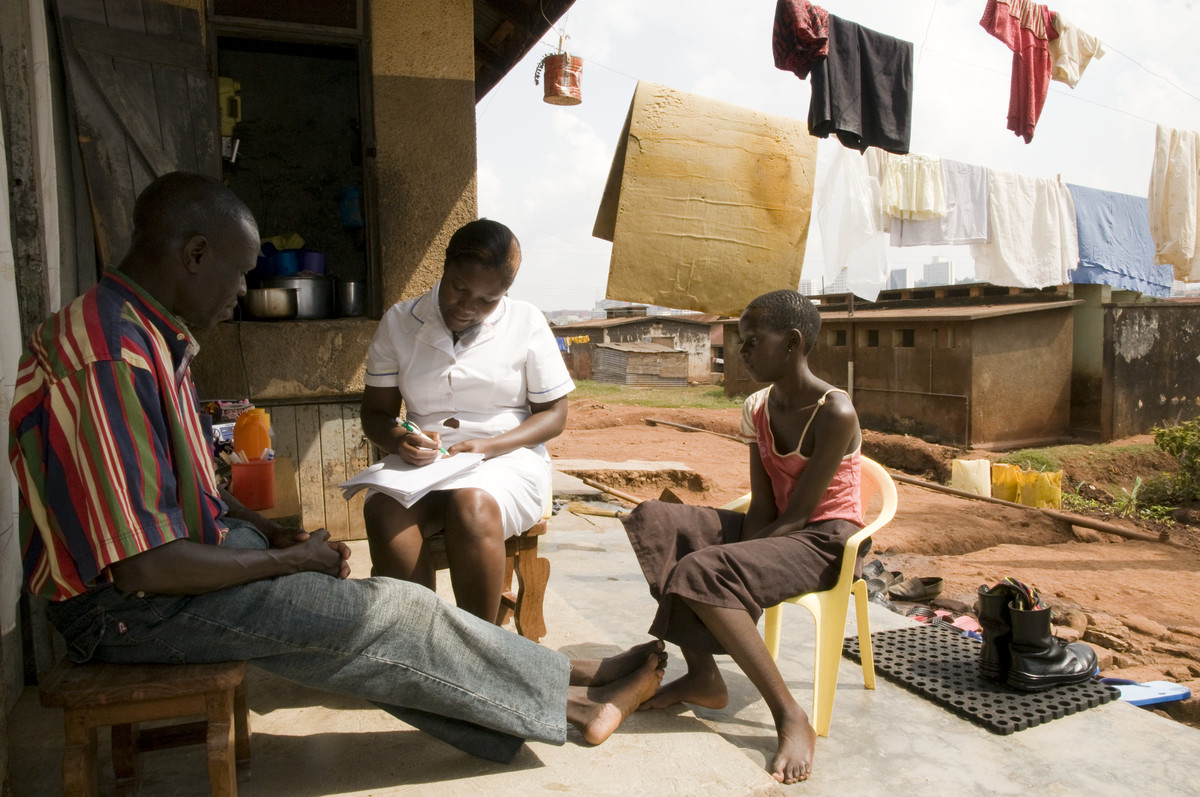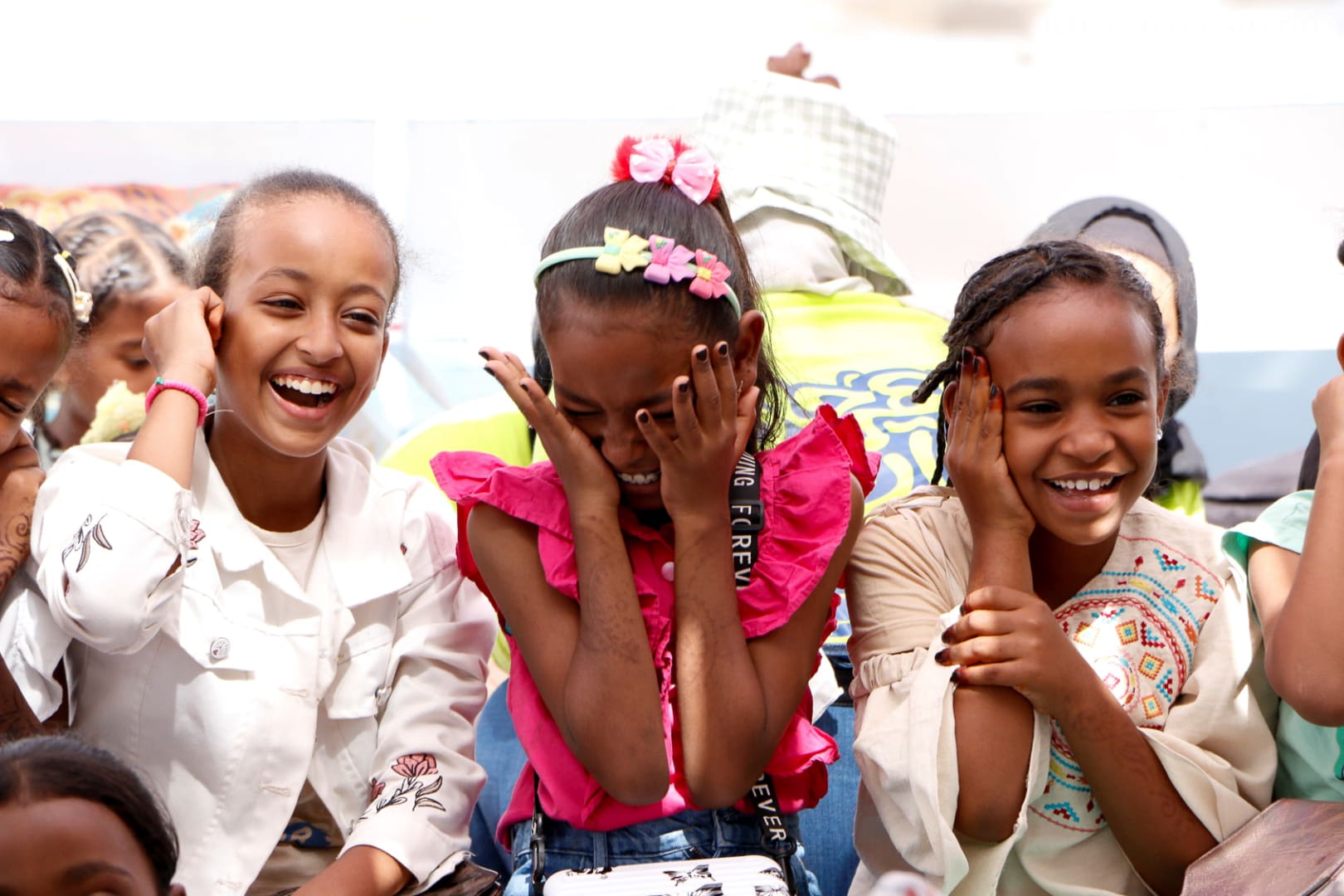Building a nest egg: how cash and other support is helping Ugandan PWDs enhance self-reliance after COVID-19
AKF's Kendra Schreiner shares stories of persons with disabilities (PWDs) supported by AKF and partners to overcome the negative impacts of the pandemic

AKF’s long-term work with civil society has been key to creating trust in its communities and supporting crucial development work. When the pandemic arrived in Uganda, it was vital that marginalised communities were reached with prevention strategies and ongoing support to help meet basic needs, such a food security.
Persons with disabilities (PWDs) were amongst the worst affected by the nation-wide lockdown. Government food distributions announced through megaphones were inaccessible for those with hearing impairments or unable to travel to distribution points; children with disabilities were often not able to access schooling offered via the radio or TV; income generating opportunities in the informal economy where most PWDs earn their livelihoods were significantly reduced; and supplies of essential medicines in rural areas began to run low.

In response, AKF Uganda (AKF-U) worked with its networks to ensure that the most vulnerable groups had the vital support they needed. Partnering with two Disabled Persons Organisations (DPOs) – the Epileptic Association of Uganda (ESAU) and the National Union for Women with Disabilities of Uganda (NUWODU) – AKF aimed to help them reach their members with information on COVID-19 prevention and support mechanisms, access to medicine, and money to purchase food, masks, sanitisers, and other basic goods.
Below are some stories of the individuals who were successfully supported to weather the worst effects of the pandemic, thanks to a responsive network of DPOs and with assistance from AKF.
Canta and Liberty’s story
When the Ugandan government announced a nation-wide lockdown in March 2020 to prevent the spread of COVID-19, Odea Canta began to worry about how she would provide for her family, especially her daughter, Liberty Christine, who lives with a physical disability and epilepsy. Restrictions on movement, and the resulting reduction in employment opportunities and access to basic goods and services, led to the family using up their savings and running out of anti-epileptic medication.
“[my daughter] is happy – she wakes up each morning to feed her chickens. She has purpose each day and I have never seen her this determined and excited”
Odea Canta
Fortunately, Canta heard that ESAU was providing cash transfers to PWDs through funding from AKF. She immediately signed her daughter up to receive this support, and access medication. Canta and Liberty decided to use some of the funds to invest in chicken-rearing, hoping to become self-reliant and meet their longer-term needs. They initially bought just two chickens – now they have 18 and expect more to hatch soon. With the additional income from selling eggs, Liberty has also been able to purchase a blanket for the cold nights and Canta has invested in other small goods to sell in the market to diversify their income. She is delighted at how the programme has impacted her daughter:
“I cannot thank the Aga Khan Foundation enough. Through this project my daughter will be well provided for; she is happy, she wakes up each morning to feed her chickens – she has purpose each day and I have never seen her this determined and excited. The dignity of my daughter has been restored through this project in my village!”
“This outreach clinic has brought services closer to me and saved me the long distance I had to walk to the health centre!”
Moriku Elise
Through ESAU and NUWODU, over 1,800 women and youth have been provided with cash transfers of 50,000-75,000 UGX (USD 13-20). Many PWDs and their families, like Canta and Liberty, have used this modest amount to meet not only immediate needs but also to invest in micro businesses that will help them provide for the future.
Zakaria James’ story
Recipients have also worked together to invest and multiply the cash support. Zakaria James, a sub-county committee member for Persons Living with Epilepsy (PLWEs) in Moyo district, decided along with 116 families of PLWEs in his area that they should invest the funds:
“We agreed to have some running individual projects: each family would buy a chicken as a start-up project with the funds we got from AKF-U. We are hopeful that these individual projects will eventually support improved nutrition, food security and other basic needs for each of the 116 families. We really appreciate the effort by AKF-U to support people with epilepsy in Moyo District.”
Through these micro businesses, group members have been able to save and generate additional income to feed their families and purchase soap, masks and sanitisers to protect against COVID-19.

Moriku Elise’s story
Distance to health centres has always presented a challenge for PWDs to access medication, but COVID-19 travel restrictions and fear of the virus presented additional barriers. Some PWDs and their family members have had to walk very far to access medication, which can lead to the dangerous situation of missed doses. Moriku Elise, who cares for an epileptic child, explained her difficulty:
“My home is in the last village on the way to Sudan. I have to walk over 15kms to access medication for my child.”
To address this, ESAU used AKF’s support to partner with five not-for-profit health units to provide them with anti-epileptic medications, train pharmacists from each unit, and provide stipends and training for 10 health workers on caring for PLWEs. Two outreach clinics were also held to provide consultations, prescription services, and psycho-social support. Moriku Elise was pleased at the service, expressing her hope that it should continue, and adding:
“This outreach clinic has brought services closer to me and saved me the long distance I had to walk to the health centre!”
ESAU and NUWODU have so far helped 4,000 PWDs increase their awareness of COVID-19 prevention strategies, as well as availability of medicine and other support, through various communication channels, including via SMS, radio, TV, and signage at health centres. With the after-effects of the pandemic likely to be felt for some time, AKF will continue supporting the DPOs to meet their members’ needs far into 2021.
Since 2018, AKF has been working with women and youth focussed Disabled Persons Organisation’s (DPOs) in Uganda. Particular attention has been paid to those groups that operate as part of a network of organisations as these allow greater reach; especially important when face to face communication is restricted.

Support our work Your donations are helping us build a future where we all thrive together.